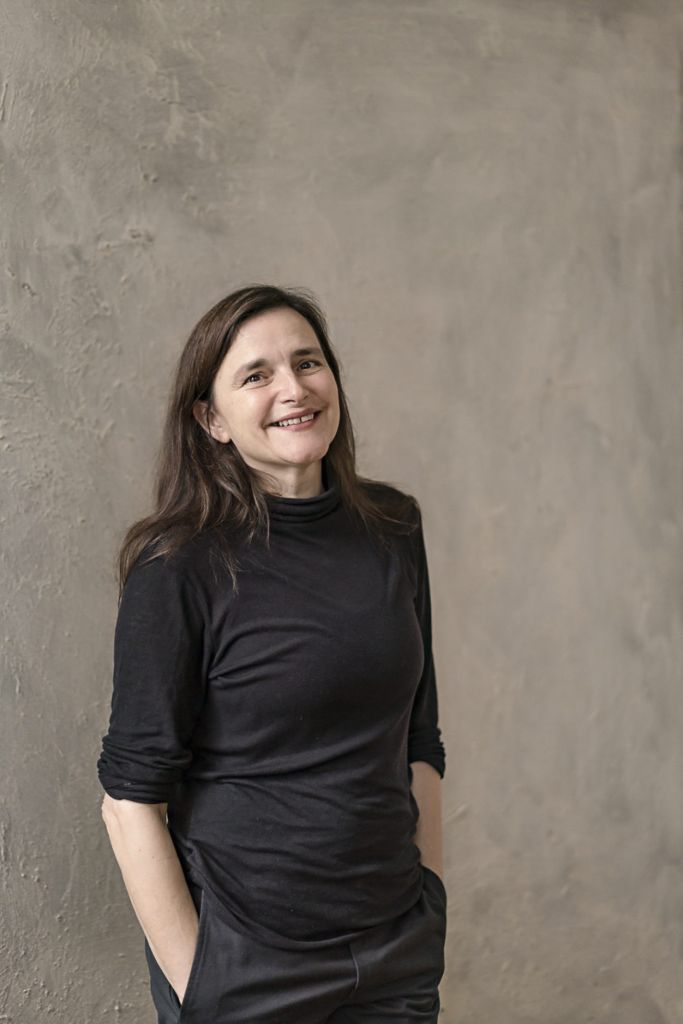Barbara Albert studied directing as well as screenplay writing and dramaturgy at Film Academy Vienna during the 1990s. Her graduation film Nordrand (1999), simultaneously her debut feature film, celebrated its world première at the Venice Film Festival and went on to achieve international renown. She has since been part of numerous prominent projects as a director, producer, and screenwriter. This semester, Albert returned to Film Academy Vienna as a directing professor. In the following, she speaks about her plans for teaching, what she expects from her exchange with students, and why now is the appropriate point in time for her return.

What do you have planned for your teaching at Film Academy Vienna?
Barbara Albert (BA): In order to do the best work possible, you need to have some knowledge about your own self as an artist and filmmaker and about your own working processes and abilities. In my teaching, I’d like to support students as they go about developing this knowledge. When I set out to make a film, my main task is to figure out where I need to remain with my vision and maybe even fight for it and where I can and should accept something that comes from my colleagues because it brings us all forward. So when I teach, it’s about a balance between individual instruction—in which I’m looking to support students along with their projects—and conveying an understanding of teamwork.
Something that’s fundamentally of great importance to me is interdisciplinary work between the individual fields—because film is teamwork! How to engage in a truly artistic manner with one’s collaborators on a film is something that one can’t start practicing early enough.
Will there be collaboration with other mdw departments?
BA: Yes, I am indeed planning to create some synergies with other mdw departments. I’m absolutely keen on working together with the Max Reinhardt Seminar. After all, I’m coming here from the Film University Babelsberg Konrad Wolf. They’ve got a dedicated acting programme there that’s integrated into the overall institution—and I’m sure that this will be possible in Vienna, too, if the Max Reinhardt Seminar is also interested. Just as important to me is collaboration with the mdw’s composers, musicians, and Tonmeisters. Having them here in Vienna is hugely advantageous, since sound and music are so strongly connected with filmmaking.
What you expect in terms of exchange with students?
BA: I do have the expectation that there will be mutual openness in the interest of building trust once we’ve gotten to know each other. I think that revealing something is part of our job since we collaborate with human beings and seek out their essence in our work. And we very often do go quite deep or immerse ourselves in exceptional emotional states. As a director, I’m interested in everything that makes being human what it is—and for that reason, one should be able to talk about what one feels. When you reveal something of yourself, you also get something back and make it possible for others to open up. Which is particularly important in working together with actors.
Why is it just now that you’re returning to Film Academy Vienna as a faculty member?
BA: My last truly Austrian film before I went to Berlin was Fallen (2006). It was a film with Austrian motifs and Austrian actors whom I greatly admire and for whom I wrote the script. That film came into being before I left for Germany. In terms of my family, there’ve been both Austrian and German influences—and my newest film, which is called Die Mittagsfrau and opened in Austrian cinemas back in October, revolves around a thoroughly German theme. So after a 13-year stint in Germany, including ten years spent teaching in Babelsberg, I made a movie that’s representative of my German years. But having finished work on that film, I felt a need to move back toward my own roots—including in terms of storytelling, of course. Aside from that, I find it inspiring to work together with young people. We’re living through a fascinating period of upheavals, an era in which far too much doubt is being cast on democracy to the point where it’s in some cases endangered. And in which there’s violence on our borders, on Europe’s borders. We have to deal with all this. These are challenges that we take up in our films—some more consciously, some less. Which makes me notice how interesting I find young people, who have a fresher perspective and are open to other narrative forms.

